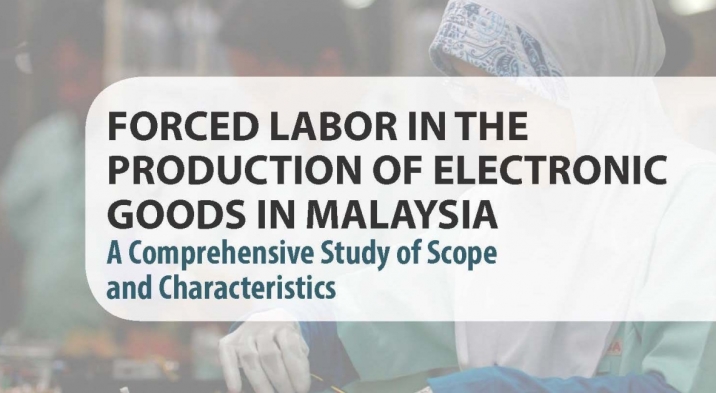
New Research from Verité exposes forced labour in the Malaysian electronics industry, citing the global labour recruitment regime as a major causes of abuses.
From the Vérite media release:
Groundbreaking Research Offers Concrete Evidence of Widespread Forced Labor Among Foreign Migrant Workers in Malaysian Electronics
You might think about debt bondage in relation to making bricks in South Asia or building skyscrapers in the Middle East, not putting together the pieces of your newest mobile phone or laser printer in Malaysia. But if you are reading this on a tablet, smartphone or computer monitor, then you may be holding a product of forced labor. Verité’s two-year study of labor conditions in electronics manufacturing in Malaysia found that one in three foreign workers surveyed in Malaysian electronics was in a condition of forced labor. Because many of the most recognizable brands source components of their products from Malaysia, this means that virtually every device on the market today may have come in contact with modern-day slavery.
Verité interviewed more than 500 male and female workers across all major producing regions, electronics products, and foreign worker nationalities. Malaysian nationals were also surveyed. The results of these extensive interviews indicate that forced labor is present in the Malaysian electronics industry in more than just isolated cases, and that the problem is indeed widespread.
“Verité’s study is the most comprehensive look at forced labor in the Malaysian electronics sector to date,” Dan Viederman, CEO of Verité, remarked. “Our report provides a clear sense of the scope of the problem in the industry, as well as the root causes underlying this egregious form of abuse, which center on unlawful and unethical recruitment practices.”
The report identifies the top factors responsible for making this sector prone to human rights abuses. According to Verité’s study, the widespread reliance on third-party agents for the recruitment, management and employment of foreign workers limits their protections and blurs accountability for labor conditions. Other top factors identified by the research as contributors to forced labor include unlawful passport retention, high and hidden recruitment fees resulting in widespread indebtedness that can trap workers in their jobs, deceptive recruitment practices, highly constrained freedom of movement, poor living conditions, fines and other penalties that prevent workers from being able to resign, and inadequate legal protections.